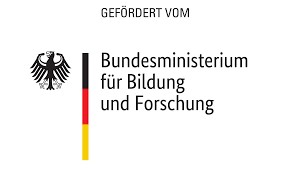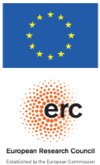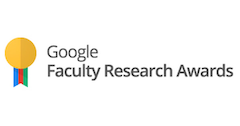Completed Projects at KIT
Decision-Making in Hybrid Adaptive Systems for Better Work and Life - An Open Science Approach
The goal of this Future Fields Stage 3 activity is to lay the groundwork for a long-term coordinated research project (DFG collaborative research center application) on decisionmaking in hybrid adaptive systems. Every day, we interact with IT systems which aim to adapt to our needs and guide our decision-making. However, this adaptation is usually a black box, and little is known about the underlying effects on humans. Do these systems take our actual preferences into account? What happens if there are competing interests? Following an Open Science approach, we aim at understanding and designing hybrid adaptive systems (as a combination of social and technological elements) with a special focus on preferences and expectations. We will study how individuals, teams, and organizations interact with adaptive IT systems in the areas of work and life. In particular, we will focus on working from home and social media usage in daily life. We will investigate how hybrid adaptive systems should be designed to a) elicit actual preferences and goals, b) act based on these preferences and goals, and c) to trade off potentially competing interests. We will follow a unique Open Science approach for researching hybrid adaptive systems and aim to establish an Open Science platform incorporating the KD²Lab, the digital citizen science platform, and real-world labs.
Funding: KIT Excellence University Funding Future Fields III
Startdate: 01.10.2023
Enddate: 30.09.2025
Contact: Lukas Aldag
KD²Ex (KIT - University of Excellence)
As part of the KIT Excellence University concept "The Research University in the Helmholtz Association | Living the Change", the "KIT Future Fields" initiative specifically supports KIT scientists in pursuing highly innovative and risky projects in the disciplines that promise scientific breakthroughs. An interdisciplinary team was formed and has received funding for the KD²Ex as part of a one-time Future Fields special call for investments. This will enable new forms of experimental research: Digital Citizen Science in the area of "Wellbeing at Home".
The strategic goal with this funding is to build a trusted ecosystem for empirical experimental research in the lab and in the field (KD²Ex). The nucleus of this ecosystem is the DFG-funded Karlsruhe Decision & Design Lab (KD²Lab). KD²Ex will provide a unique infrastructure that enables new forms of experimental research in the sense of Digital Citizen Science. Individual citizens as well as citizen groups (e.g. households) will be enabled to actively participate in research. KD²Ex includes public infrastructure such as assembly booths and terminals, household infrastructure including neurophysiological devices as well as software (e.g. digital participation platform). Thematically, the initial focus will be on the research field of "Wellbeing at Home" from a work and education perspective, a highly relevant topic during the Corona crisis and beyond.
Within this project, a study is conducted that examines everyday working life. The number of cyber-attacks has increased since the Corona-related shutdown. At the same time, many employees are less well protected from these attacks at home, which has many reasons. On the one hand, the fear of becoming a victim of such an attack is increasing, while at the same time workers lack both awareness-raising measures and tools to help them recognise these attacks. It is important that the measures and tools are efficient and effective and significantly increase the workers' sense of security. In the context of this study, the efficiency, effectiveness and the increase in self-efficacy in everyday work for selected available awareness-raising measures and tools are therefore measured over a longer period of time. At the same time, the digital participation platform enables a debate on experiences with the measures and tools in order to derive suggestions for improvement measures.

Funding body: KIT-Exzellenzuniversität, Bundesministerium für Bildung und Forschung (BMBF), Ministerium für Wissenschaft, Forschung und Kundst (MWK)
Partners: Prof. Christof Weinhardt (IISM), Prof. Alexander Mädche (IISM), Prof. Petra Nieken (IBU), Prof. Benjamin Scheibehenne (IISM), Prof. Nora Szech (ECON) und Prof. Alexander Woll (IfSS)
Funding period: 01.01.2021 - 30.06.2022
Contact: Christopher Beckmann, Peter Mayer, Melanie Volkamer
Effective Security Awareness at KIT
The aim of this project is to develop a first security awareness measure (in the form of an approx. 30 to 45 minute measure) specifically for the KIT employees, to evaluate it and to improve it on this basis. Afterwards it could be establish at KIT. Through the use of empirically evaluated security awareness measures, KIT is a pioneer of a cultural change in the area of security awareness, which the BSI is currently also promoting. The approach pursued in this project is intended to bring together the competence of the SECUSO research group and ESS with applications from the implementation of information security at KIT through the Digital Office, which again is in line with the “KIT as a real laboratory” idea. The two subject areas that are intended for this project are raising general awareness for information security and the topic of safe workplaces and e-mail security (including the detection and reporting of phishing e Emails and the use of S / MIME).
Funding body: KIT Strategie-Fond
Partners: Scientific Computing Center (SCC) und KIT Digital Office
Funding period: 01.07.2021 - 30.06.2023
Contact: Fabian Ballreich, Melanie Volkamer
End-to-End Verifiable and Secret Online Elections at KIT
KIT currently offers the possibility to conduct online polls. Thereby, conducting open votes, e.g., within video meetings of committees, is relatively easy. However, secret online votes and elections pose a disproportionately greater challenge – due to the opposing requirements which result from the secrecy of the ballot on the one hand side and the need for traceable correctness and election security on the other hand side. Therefore in 2021, the project „Introduction of Online Elections at KIT“ started at KIT, which examines the legal framework conditions, adjusts them, and looks at realization possibilities analogous to the approaches of other universities (usually, these are referred to as so-called black-box systems). For this matter, policy-regulatory and formal-organisational questions initially play a superordinate role. A forward-looking consideration of questions about traceable correctness of the election results – e.g., for being able to reveal manipulations – and thereby the creation of digital transparency for the voters demands in addition a further and deeper investigation.
The goal of this project is the design and the prototypical implementation of an online voting system for end-to-end verifiable, secret elections at KIT. The prototype will be employed for a KIT-wide straw poll. The aim is notably not to change the decision-making power, but to explain complex technical situations.
Funding body: KIT-Strategiefond
Partners: Bernhard Beckert, Jörn Müller-Quade, Martin Nußbaumer, Michael Kirsten, Felix Dörre, Ulrich Weiß
Funding period: 01.07.2022-31.12.2023
Contact: Melanie Volkamer

The security of websites depends on its owner. Small website owners (individuals, clubs, freelancer, SME) provide the bulk of websites on the Internet, but often neglect the security aspect of ther sites. They use cheap software systems plagued by security vulnerabilities to manage their websites. Operators of fraudulent online shops (fake shops) exploit these vulnerabilities by inconspicuously redirecting visitors of renowned websites to their fake shop. There they trick visitors into pre-paying for products the vistors will never receive. Oftentimes the owners of the "victim-websites" do not recognize that their sites have been hacked due to insufficient knowledge of the issues and how to detect them. Many websites are affected by such hacks and millions of German citizens have become victims of fake shops.
The goal of the project is to crawl the German-speaking Internet and identifiy hacked websites through methods methods artificial intelligence in an automated fashion. Additionally, measures will be developed that allow informing owners of affected websites, mitigate the damage to the websites, and reduce the risk of further successful attacks.
Funding body: BMBF
Partners: mindUp Web + Intelligence GmbH, BDO AG
Funding period: 01.06.2020 - 31.11.2023
Contact: Anne Hennig, Peter Mayer, Melanie Volkamer
Future Democracies(KIT-Exzellenzuniversität)
Democracy is a valuable asset. In order to be able to protect them in the future, technical protective measures are required. Two important areas are the secure and reliable digitization of the electoral processes including the secure and usable implementation of new concepts such as the liquid democracy concept and the containment of the influence of fake news and alike. The aim is - by means of workshops - to bundle the research and interest of researchers in the field of future democracies from the KIT center KCIST.
technical protective measures are required. Two important areas are the secure and reliable digitization of the electoral processes including the secure and usable implementation of new concepts such as the liquid democracy concept and the containment of the influence of fake news and alike. The aim is - by means of workshops - to bundle the research and interest of researchers in the field of future democracies from the KIT center KCIST.
More information: https://evoting.kastel.secuso.org/

Funding body: KIT-Exzellenzuniversität, BMBF, MWK
Partners: KIT Zentrum KCIST
Funding period: 01.05.2021 - 31.01.2022
Contact: Melanie Volkamer
The Competence Center for Applied Security Technology (KASTEL) is one of three competence centers for cyber security in Germany, which were initiated by the Federal Ministry of Education and Research (BMBF) in March 2011. Following the motto “Comprehensible security in the networked world”, KASTEL is meeting the challenges posed by the increasing interconnection of previously isolated systems. Of particular importance are the consequences of digitalization in the area of critical infrastructures, for example in the energy economy, in industrial production or networked mobility, but also in "intelligent" environments. KASTEL bundles the competencies in the field of IT security at the research location Karlsruhe. The goal is to develop a widespread approach instead of isolated partial solutions. The focus will be on comprehensive security in specific application areas, such as power grids or intelligent factories. To ensure this security, new threats need to be modeled, security objectives need to be described and new methods have to be developed. This can only be achieved through the cooperation of cryptographers, IT-security specialists, software-engineers, network experts, jurists, economics and social scientists – like here at KASTEL.
The goal of the project 'human factors' is to research security concepts and awareness approaches in the context of energy providers.
Funding body: BMBF
Partners: FZI Forschungszentrum Informatik; Fraunhofer-Institut for Optronik, Systemtechnik und Bildauswertung; secorvo Security Consulting Karlsruhe; Karlsruher IT-Sicherheitsinitiative; Surveillance: Ethical Issues, Legal Limitations and Efficienty; Forschungsverband - Sicherheit im öffentlichen Raum; AISEC - Fraunhofer-Einrichtung für Angewante und Integrierte Sicherheit
Funding period: 01.05.2018 - 30.04.2021
Contact: Lukas Aldag, Benjamin Reinheimer, Melanie Volkamer
The project deals with Smart Homes - households in which domestic appliances  and multimedia equipment interact and can be centrally remote controlled. These Smart Homes give rise to diverse and complex cyber-security challenges, on which GHOST reacts using a pioneering, software-compatible and usable security solution. GHOST provides a transparent cyber-security environment for all Europeans living in a networked world: with minimal effort, consumers shall be aware of and understand cyber-security risks and shall make informed decisions regarding their cyber-physical security and privacy.
and multimedia equipment interact and can be centrally remote controlled. These Smart Homes give rise to diverse and complex cyber-security challenges, on which GHOST reacts using a pioneering, software-compatible and usable security solution. GHOST provides a transparent cyber-security environment for all Europeans living in a networked world: with minimal effort, consumers shall be aware of and understand cyber-security risks and shall make informed decisions regarding their cyber-physical security and privacy.
This project has received funding from the European Union’s Horizon 2020 research and innovation  program under grant agreement No GA-740923").
program under grant agreement No GA-740923").
Funding body: European Union (EU)
Partners: Televe, Université de Genève, Centre for Research & Technology - Hellas (Certh), NTNU: Norwegian University of Science and Technology, Imperial College of Science - London, EXUS Software, Kalos Information Systems, Cruz Roja Espanola Fundacion, Obrela Security Industries.
Funding period: 01.05.2017 – 31.05.2020
Contact: Alireza Zarei, Oksana Kulyk, Melanie Volkamer
This project will thoroughly investigate the effectiveness and usability of such link-centric phishing warnings by (1) integrating, improving, and evaluating their warning design; (2) conducting an online behavioral experiment to validate and optimize the link security indicators and cool-down methods of the warnings; and (3) implementing the results in a publicly available browser extension, which (4) will enable a future long-term field study on the effectiveness and habituation to phishing warnings. The results will have a practical impact on the design of phishing alerts in online email clients (e.g. Gmail) and browsers (e.g. Chrome).
and usability of such link-centric phishing warnings by (1) integrating, improving, and evaluating their warning design; (2) conducting an online behavioral experiment to validate and optimize the link security indicators and cool-down methods of the warnings; and (3) implementing the results in a publicly available browser extension, which (4) will enable a future long-term field study on the effectiveness and habituation to phishing warnings. The results will have a practical impact on the design of phishing alerts in online email clients (e.g. Gmail) and browsers (e.g. Chrome).
Email services like Gmail automatically detect certain suspicious links and filter out many phishing emails. However, despite its high accuracy, phishing detection is probabilistic and can produce false positives (removal of legitimate email) and false negatives (no Spear-Phishing detection). Therefore, phishing alerts complement automatic detection to deal with uncertainty, and people are still encouraged to carefully check URLs before clicking on a link to avoid phishing.
Sponsored by: Google
Cooperation partner: University of Michigan
Period: Since 2020
Contact: Melanie Volkamer, Benjamin Reinheimer
Secure and usable authentication for AR & VR Head-Mounted Displays (Facebook Research Award)
 Augmented & Virtual Reality (AR & VR) Head-Mounted Displays (HMD) bring digital communication to the next level. AR & VR devices increasingly provide social activities, like virtual gaming, virtual shopping or navigational support. Many of these activities happen in so-called shared spaces, i.e., places not strictly public, but where multiple people are present at the same time. However, these activities introduce new security challenges in AR & VR, including authentication challenges. Authentication with AR & VR HMDs, e.g. for making payments during virtual shopping or entering a virtual conference, needs to be (1) resistant to observation, (2) user friendly, (3) perceived as secure and (4) does not require additional equipment.
Augmented & Virtual Reality (AR & VR) Head-Mounted Displays (HMD) bring digital communication to the next level. AR & VR devices increasingly provide social activities, like virtual gaming, virtual shopping or navigational support. Many of these activities happen in so-called shared spaces, i.e., places not strictly public, but where multiple people are present at the same time. However, these activities introduce new security challenges in AR & VR, including authentication challenges. Authentication with AR & VR HMDs, e.g. for making payments during virtual shopping or entering a virtual conference, needs to be (1) resistant to observation, (2) user friendly, (3) perceived as secure and (4) does not require additional equipment.
This project aims to develop and evaluate secure und usable authentication schemes for AR & VR HMDs. Existing and newly designed authentication schemes will be implemented using various interaction methods of AR & VR HMDs. The schemes will be validated with user studies both in Germany and the US.
Sponsored by: Facebook
Cooperation partner: University of Denver
Period: Seit 2020
Contact: Reyhan Düzgün, Peter Mayer, Melanie Volkamer
Digilog (Land BW)


Digitalisation is changing social coexistence in a variety of ways, some of which are fundamental. The aim of digilog@bw is to analyse the influence of digitalization on people and the resulting social changes in an interdisciplinary way. The digilog@bw project develops scientifically sound decision bases for politics and society in order to enable digitalization to be designed for the benefit of people. This design task requires orientation towards critically reflected values, norms and framework conditions. The collaborative projects "Autonomy", "Knowledge" and "Participation" will be carried out in an interdisciplinary and cross-location basis and will focus on the question of criteria for a promising and responsible digital society.
To this end, the Research Network brings together Baden-Württemberg expertise from university and non-university research in the humanities, social sciences, law, economics, media and communication sciences, ethics, computer science and interdisciplinary technology assessment at the highest scientific level. digilog@bw is also characterised by the fact that a multi-layered dialogue with the public through exhibitions, discussion events and lecture series will be created. Thus, digilog@bw will make a well-founded contribution not only to scientific but also to public discourse.
Funding body: BMBF Land BW
Partners: University of Mannheim, Mannheim Centre for European Social Research (MZES), KASTEL@KIT, KD2Lab@KIT, ITAS@KIT, International Center for Ethics in the Sciences and Humanities (IZEW), University of Tübingen, GESIS Leibniz Institute for the Social Sciences, ZEW – Leibniz Centre for European Economic Research, Leibniz Institute for the German Language (IDS), Leibniz-Institut für Wissensmedien (IWM), ZKM | Center for Art and Media
Funding period: 01.09.2019 - 30.08.202
Contact: Melanie Volkamer, ,
